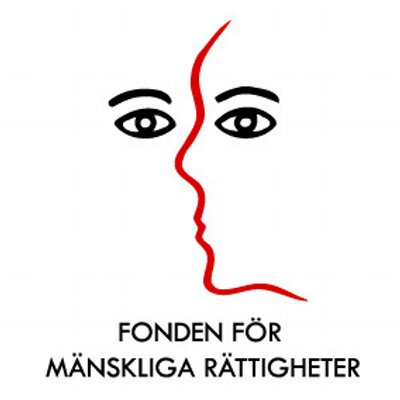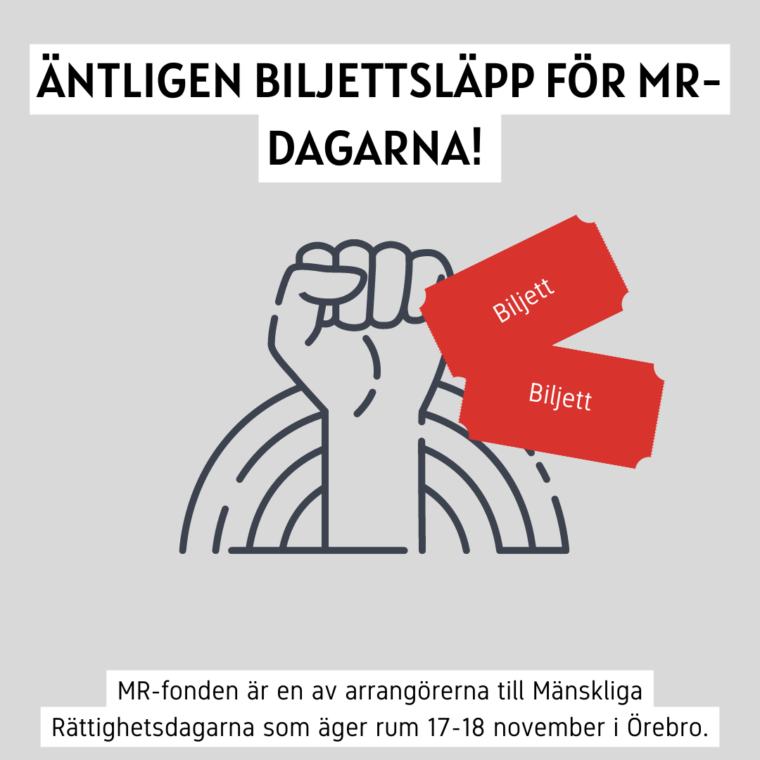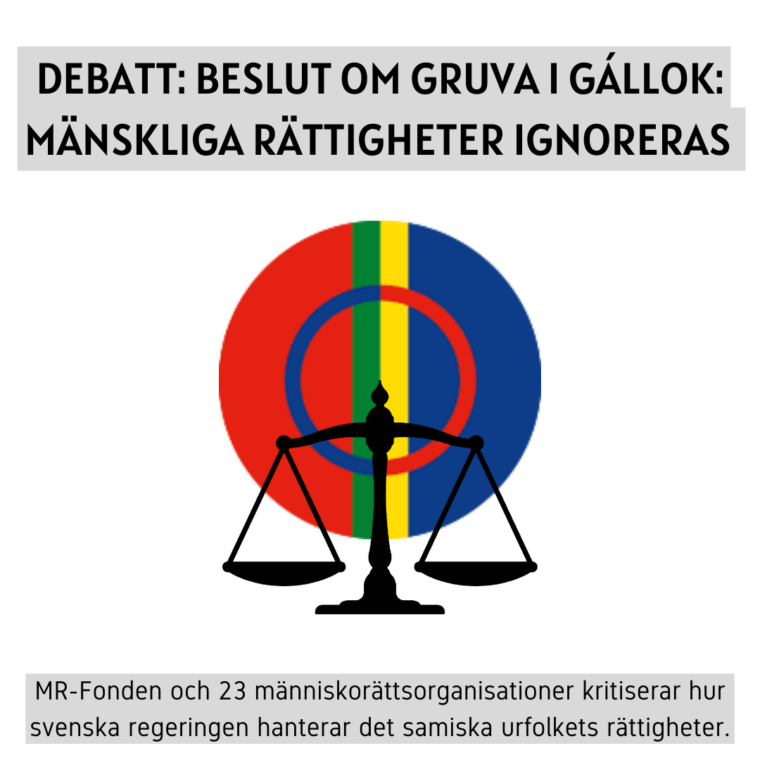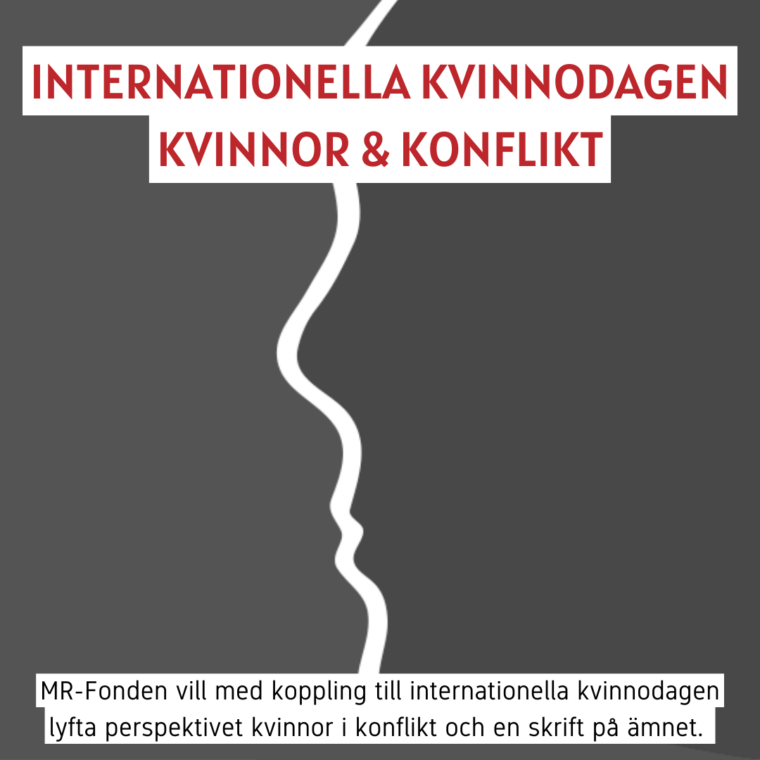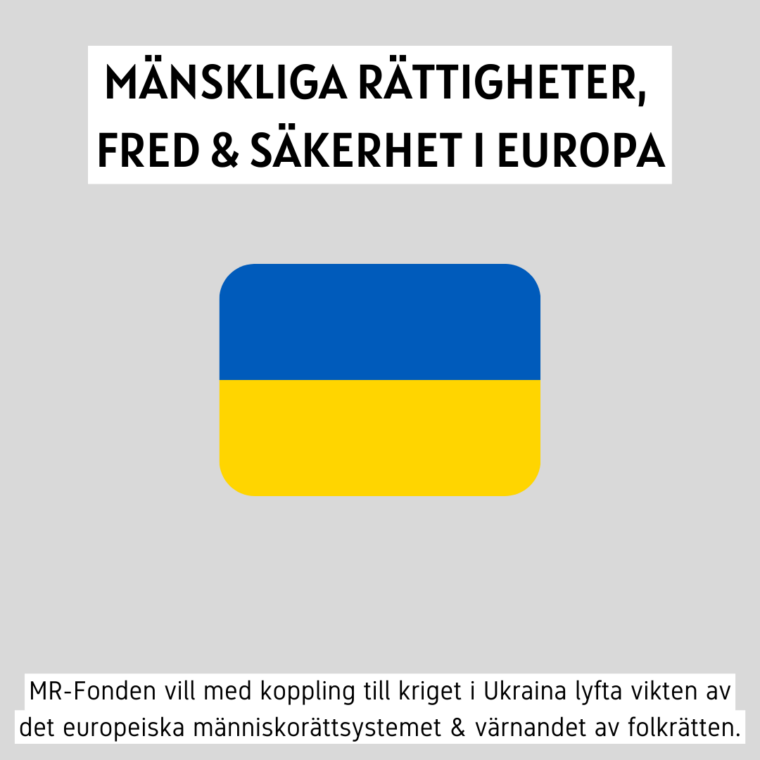As part of its mandate, the Commission for the Clarification of Truth, Coexistence, and Non-Repetition (“Commission” or “CEV”) has developed a pedagogical strategy to generate cultural and educational initiatives for the dissemination and social understanding of its final report and its recommendations. With this, the Commission intends to anchor in the citizenry -resident in Colombia and abroad- processes of cultural and social transformation that contribute to the non-repetition of the conflict, taking into account the territorial, ethnic, and gender approach. Hence, the Commission has advanced efforts to fulfil this objective through Collaborative networks in different countries of Europe and America, which have also contributed to the pedagogical efforts founded on recognition, coexistence and not repetition.
The Swedish Foundation for Human Rights (“MR-Fonden”) has supported the Truth Commission through different efforts such as supporting information dissemination activities, taking testimonies, delivering reports and carrying out listening acts. In addition, it has carried out collaborations, within the Commission’s pedagogy strategy framework, through alliances with social organizations to disseminate and mobilize society around the mandate of Truth and a culture of peace in Colombian society, especially that who resides abroad.
An important example of these efforts was the “First International Meeting of Colombian Students in Europe. The truth: The value of knowing” convened by the Círculo de la Palabra de Barcelona, which the support of MR-Fonden, the International Catalan Institute for Peace (ICIP), the Institute of Studies on Development and International Cooperation of the Basque Country (HEGOA), and the Catalonia Collaborative network of the Commission. Before the Meeting, five seminars were held with experts on the Colombian conflict who reflected on the country’s reality and questions about the legacies of truth and its character as a public good, its polyphonies and expressions in art, fanaticism and improbable dialogues. Among the expert guests were professors Hernando Valencia Villa (Seminar 1: The truth as a public good: political education and citizenry), Víctor de Correa Lugo (Seminar 2: Disarming fanaticisms: improbable dialogues for truth and peace), Andrés Bernal (Seminar 3: Diversity and Polyphonies of truth), Laura Quintana (Seminar 4: The legacies of truth for a society in transition) and María Elisa Pinto (Seminar 5: The path of arts and reflections on a re-humanizing artistry).
The meeting lasted three days. On the first day (September 28), the students participated in the workshop ‘The historical truth: common good and legacy for a society in transition”, with special interventions by Commissioner Carlos Martín Beristain, the director of the Hegoa Institute, Irantzu Mendia, and Professor Hernando Valencia Villa, who presented an analysis on the Constitutional Court and the future of the Commission’s mandate.
The second day (September 29) focused on ‘The clarification of the truth in Colombia: moving from fanaticism to polyphony’. In this work table, the students presented their papers and exchanged perspectives with Dr. Vera Samudio, researcher at CINEP/PP and the Technical Secretariat of the International Component for Verification of the Peace Agreements between the Colombian Government and the FARC-EP. The Secretary-General of MR-Fonden, Ulrika Strand, also made a special intervention, together with the professor and doctor in anthropology and member of feminist and victim movements Diana Gómez.
The week ended (September 30), with the presentation of the Transmedia of the Truth Commission by Commissioner Lucía González, and the workshop “Arts, languages and aesthetics of truth”, facilitated by Dr. Andrea Rodríguez Sánchez. Ana Isabel Barrera gave the closing statements from ICIP, while the organizers re-stated their commitment to the work of the CEV. Most importantly, the students took centre stage through their theoretical and methodological presentations on truth, memory, and its multiple dimensions.
Just three months before the end of its mandate, the Commission has the task of explaining what happened during the conflict, why it happened, what consequences it left on the communities and what must be done so that this experience does not happen again. The narrative about the conflict that will be presented in its final report and its recommendations entail a tool for non-repetition and an instrument for reflection for the entire Colombian society, in which war refuses to die. Faced with a context of continuous violence, citizen initiatives, as well as initiatives from the Collaborative networks and organisations aimed at supporting the work of the Commission, acquire vital importance.


